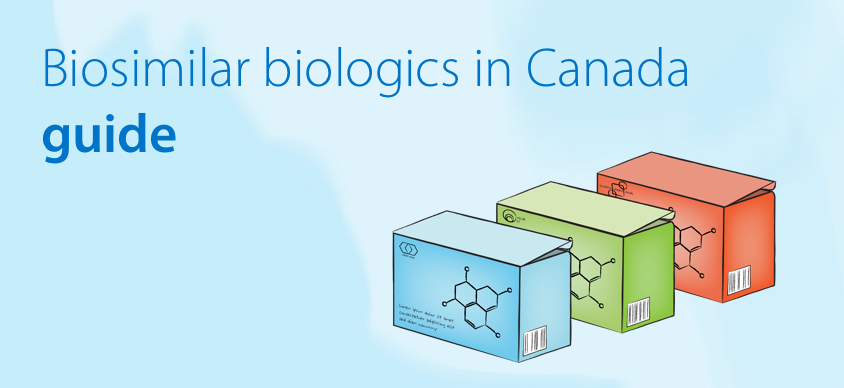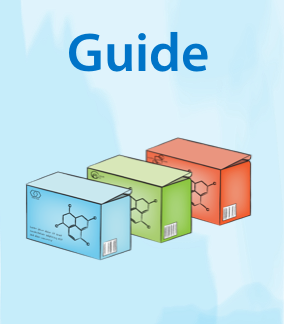
Since biosimilar biologics were first approved in the European Union (EU) in 2006, hundreds of thousands of EU patients with autoimmune diseases such as inflammatory arthritis and inflammatory bowel diseases have been using biosimilars with no compromise to patient safety, effectiveness or quality of care. Europe remains the global leader with over 50% of biosimilar utilization.[1]
More than 200 research studies exist looking at patients who have successfully policy transitioned from a TNF inhibitor originator biologic to its TNF inhibitor biosimilar biologic and show no health differences between patients. Here is the latest evidence and reading on biosimilars transitioning:
- Safety, Immunology and Interchangeability of Biosimilar Monoclonal Antibodies and Fusion Proteins: A Regulatory Respective
- Switching Reference Medicines to Biosimilars: A Systemic Literature Review of Clinical Outcomes
- Kurki et al. - Interchangeability of biosimilars: A European perspective
[1] Medicines for Europe infographic May 2022
https://www.medicinesforeurope.com/wp-content/uploads/2022/05/Facts-and-figures-BIOS-2022.pdf
Learn more about biosimilars transition research
Learn more about biosimilars transition research
To stay informed, go to these sources for the latest research in North America and Europe:
Canadian Rheumatology Association Position Statement on Biosimilars
Post marketing surveillance research
Post marketing surveillance research
Tracking the efficacy, safety and value to patients and the healthcare system of both originator biologics and their biosimilar biologics is important. Patients and their physicians rely on this "real-world data" when they are making treatment decisions.
What is real-world data?
What is real-world data?
There are many, varied definitions of “real-world data” (RWD). Essentially, RWD is a measurement of the efficacy of a medication after it receives approval by Health Canada, when prescribed and used in a practical, real-life setting that go beyond what is normally collected in pre-approval clinical trials and studies. RWD comes from various sources and includes patient data, data from clinicians, hospital data, data from payers and social data. Through its use, alongside traditional data sources (such as clinical trials), RWD has the potential to provide new insights into medicines and their effects in the context of different larger patient populations.
In the context of biosimilars, tracking the efficacy, safety and value to patients and the healthcare system of both originators and their biosimilars is important. Patients and their physicians rely on this “real-world data” when they are discussing and making treatment decisions.
When you are having a conversation about biosimilars as a treatment option with your health care professional or public or private drug plan, ask them about these important real-world data discussion points:
- What has been your experience with prescribing biosimilars?
- Are you satisfied they are a safe and effective treatment option for me? Why?
- Does the biosimilar you are recommending to me have a patient support program?
- Where can I find reliable, easy-to-read information on biosimilars?
Evidence and additional reading on biosimilars
Evidence and additional reading on biosimilars
adalimumab
etanercept
infliximab
- Clinical study: Non-medical Switch from originator infliximab to biosimilar (rheumatology)
- ECCO: Position Statement on the Use of Biosimilars for Inflammatory Bowel Disease
- Efficacious transition from reference infliximab to biosimilar infliximab in clinical practice
- NOR-SWITCH study: non-medical switching for all indications, originator infliximab to biosimilar
- Clinical study: Effectiveness of Switching from Reference Product Infliximab to Infliximab-Dyyb in Patients with Inflammatory Bowel Disease in an Integrated Healthcare System in the United States: A Retrospective, Propensity Score-Matched, Non-Inferiority Cohort Study
insulin glargine
- Clinical study: Switching to Insulin Glargine Biosimilar
- Clinical study: Similar efficacy and safety between insulin glargine biosimilar and biologic (Lantus)
rituximab
- Efficacy and safety of switching from rituximab to biosimilar CT-P10 in rheumatoid arthritis
- Long-Term Efficacy and Safety of Biosimilar CT-P10 Versus Innovator Rituximab in Rheumatoid Arthritis: 48-Week Results from a Randomized Phase III Trial
- A randomized, double-blind trial to demonstrate bioequivalence of GP2013 and reference rituximab combined with methotrexate in patients with active rheumatoid arthritis
Learn more about biosimilars transitioning
To stay informed, go to these sources for the latest research in North America and Europe:
- Canadian Rheumatology Association Position Statement on Biosimilars
- Canadian Rheumatology Association Biosimilar FAQ
- Ontario Rheumatology Association Biosimilar Position Statement
- European Medicines Agency: Biosimilars in the EU
- American College of Rheumatology
- PubMed (National Center for Biotechnology Information)

Arthritis Consumer Experts
© 2024

ACE thanks Arthritis Research Canada (ARC) for its scientific review of ACE and JointHealthTM information and programs.

Arthritis Consumer Experts
© 2000-2021

ACE thanks Arthritis Research Canada (ARC) for its scientific review of ACE and JointHealthTM information and programs.


Arthritis Consumer Experts
© 2000-2021

ACE thanks Arthritis Research Canada (ARC) for its scientific review of ACE and JointHealthTM information and programs.











